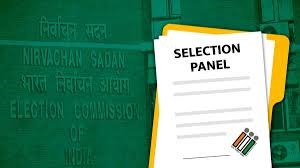West Bengal has always had very long periods of continuous reign by a party, once for above three decades. Sometimes the reign becomes so prolonged and the ruling party becomes so entrenched that many of us bureaucrats and the general populace don’t believe that another party might ever come to power. Problem is, the ruling party of the time also believes so.
One such party was winning every election hands down. There was a certain amount of popular support when they came to power. Then, some popular support was manufactured through massive social engineering so much so that the party affiliation became the person’s main identity. Many times, marriages were solemnised only when the party affiliations matched. Admissions to schools and colleges, getting a job, living in peace, everything revolved around the party. As someone quipped, “The state had withered away.”
Further, being the ruling party, they could get away with certain things which would perpetuate their rule. The Panchayat elections were the highest-stakes elections. In one particular election, the word was that, if any one stood for elections against the ruling party candidate, the big leaders would visit his house and politely give him long, involved lectures on high Economics, Philosophy, Current Affairs and so on and try to convince him to withdraw his little candidature when such weighty issues were at stake. If he got convinced, well and good. Otherwise, they would just go away quietly, catch hold of a small child in the village and send a white saree (mark of a widow) through him to the wife of the adamant candidate. In sheer terror, many such people withdrew their candidature post-haste.
In the halcyon days of its rule, the Party didn’t believe that there could ever come a day when they might be out of power in the state. In the West Bengal Panchayat Elections Act passed by them, there was an innocuous looking clause 42 which read:
“The State Government shall, in consultation with the Commission, by notification, appoint the date or dates and hour or hours of poll for any election or bye-election.”
The clause was anything but innocuous. This one sentence completely obviated the autonomy of the State Election Commission (SEC). As the ruling party could mobilise far more manpower and resources across the state for election related intimidation, rigging, manipulation and so on, it was advantageous for them to have the elections in one phase so regardless of the recommendation of the State Election Commission, they would go ahead with declaring the election on one date or some staggered dates as per what suited them. In the Centre, the Election Commission of India decides on the timelines and phases of polling depending on the threat situation, manpower availability and so on. They pump in extra security forces through such staggered dates or arrange the dates towards targeted security enhancement in certain areas.
The other part was that the state would supply the security forces for the Panchayat elections. Hence, the state had the power not to supply enough so that unfair practices could have a field day.
Ever since, except on one occasion when the matter went right up to the Supreme Court which intervened, the State Government has practically always decided on the date/s of the Panchayat election or the SEC has acquiesced. Coupled with the force situation, this has tilted the outcome very heavily in favour of the party in power. The same party which was being too clever by half in putting in the clause is now in opposition, ruing its own past machination and is bitterly protesting against the fallout of the clause.
The same situation is now obtaining with the appointment of the members of the Election Commission of India (ECI). The Supreme Court had given a great formula of a Committee comprising the Prime Minister, Leader of the single largest opposition Party and the Chief Justice of India to select the members of ECI. This would have led to added credibility of the institution, its autonomy and its functioning. It would also have guarded against the ruling party of the day enjoying any unfair advantage or being seen to so enjoy it. Rather than staying with or improving upon it, the judgement has been scuppered through the latest Act which has made the selection process of the ECI members a farcical formality. The point is, neither any ruling party nor any leader will be there for ever. No party in power later would bother to change it as the current Act would be seen as advantageous to them. It is quite possible that this Act might come back to bite the same people who have brought it in, à la West Bengal.
Why do parties and leaders think that they will
reign for ever? I think, there is a word for it. Hubris.




No comments:
Post a Comment